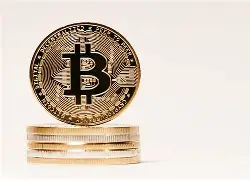
An educational approach, without excessive hype
In recent years, cryptocurrencies and decentralized finance (DeFi) have gained a lot of attention. Some people see them as the future of money. Others are more cautious, worried about scams, volatility, and lack of regulation.
So, what’s the truth? Are crypto and DeFi a real opportunity—or just too risky to consider?
This guide explains the basics in plain language, helping you understand how they work, what risks exist, and whether these tools might (or might not) be right for you.
What Are Cryptocurrencies?
Cryptocurrencies are digital currencies that operate without a central authority like a bank or government. The most well-known example is Bitcoin, created in 2009. Others include Ethereum, Solana, Cardano, and thousands more.
These currencies work on a technology called blockchain, which is like a public ledger—everyone can see the transactions, but no one can change them.
You can buy, sell, or trade cryptocurrencies using apps or exchanges. Some people use them to invest, others to send money, and a few even use them to pay for goods or services.
Key features of cryptocurrencies:
- Decentralized (not controlled by one entity)
- Global and fast transactions
- Highly volatile prices
- Not widely accepted in everyday life (yet)
What Is DeFi?
DeFi stands for Decentralized Finance. It refers to financial tools and services—like loans, savings accounts, or exchanges—that run on blockchain technology, usually without banks or traditional intermediaries.
With DeFi, you can:
- Earn interest on your crypto by “staking” or lending it
- Borrow assets by using your crypto as collateral
- Trade tokens instantly on decentralized platforms (like Uniswap)
All of this is done using smart contracts—pieces of code that execute automatically when conditions are met.
Key features of DeFi:
- Open to anyone with an internet connection
- Usually doesn’t require identity verification
- Operates 24/7
- Still experimental and mostly unregulated
The Opportunities
While the crypto and DeFi world comes with risks, there are also real opportunities—especially for people who are curious and willing to learn.
1. New ways to grow your savings
Some DeFi platforms offer returns (APYs) that are higher than traditional savings accounts. These returns come from lending markets, trading fees, or incentives for participating in networks.
2. Financial access for more people
In many countries, people don’t have access to traditional banks or credit systems. DeFi can provide services to anyone with a smartphone and internet.
3. Innovation in payments and finance
Cryptocurrencies make it easy to send money across borders, often with lower fees than traditional services. This can help freelancers, remote workers, and small businesses.
4. Early-stage investing
Just like the early internet, the crypto space offers a chance to invest in new technologies—some of which may become mainstream in the future.
But none of this is guaranteed, and rewards often come with high risks.
The Risks
Cryptocurrencies and DeFi are not without serious downsides. It’s important to understand them before investing your time or money.
1. Volatility
Crypto prices can rise or fall by 20% or more in a single day. That makes it risky for short-term use or emergency savings.
2. Scams and hacks
Because crypto is not regulated like traditional finance, it’s easier for bad actors to create fake projects or steal user funds. DeFi platforms have also been hacked due to bugs in smart contracts.
3. No protection
If you lose your private key (like a password) or send funds to the wrong address, there’s usually no way to recover them. There’s no bank or authority to call for help.
4. Regulatory uncertainty
In some countries, crypto is banned or restricted. In others, new laws are being introduced that may affect how crypto is taxed or used.
5. Complexity
Using DeFi platforms often requires learning how to use crypto wallets, manage transaction fees, and understand different tokens and risks.
Should You Get Involved?
Crypto and DeFi aren’t for everyone. But if you’re curious, you don’t have to go “all in” to start learning.
Here are some tips for beginners:
- Start small. Don’t invest more than you can afford to lose.
- Do your research. Learn about the project before buying any token.
- Use trusted platforms. Stick with well-known exchanges or wallets.
- Practice with test accounts. Some platforms let you try features without using real money.
- Follow updates. Regulations and risks change often—stay informed.
It’s okay to watch from the sidelines until you feel ready.
Final Thoughts
Cryptocurrencies and DeFi represent a new and rapidly growing area of finance. They offer exciting possibilities, but also come with real and sometimes hidden risks.
You don’t need to be an expert—or a tech person—to begin understanding how they work. By taking time to learn, staying cautious, and starting small, you can explore this new world without falling into common traps.
Treat crypto and DeFi like any financial tool: not as a guaranteed path to riches, but as something that can be useful if you use it wisely.